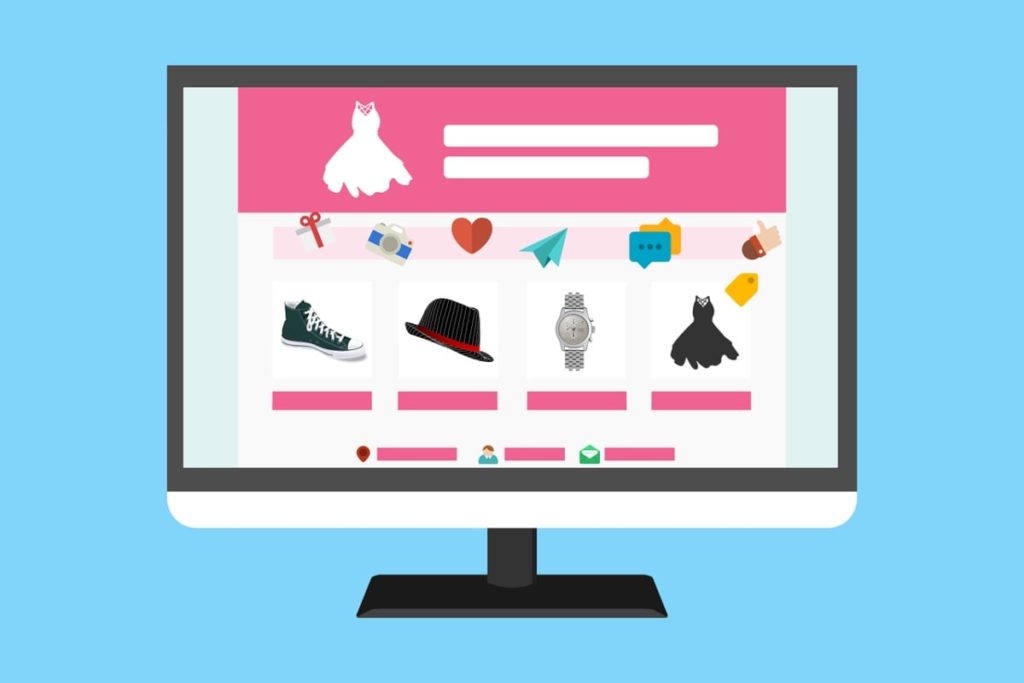Introduction
You know you want to sell online, but you don’t know how to do it? You want to choose between a marketplace or having your own e-commerce website but don’t know which is better for you. Keep reading.
Amazon, known worldwide, and people buy and sell a lot from Amazon, but it is not the only option available. You can use another marketplace or build your own e-commerce website.
In this article, I shed light on the differences between an online marketplace like Amazon and having your own e-commerce website. By the end of this article, you should know what will be better for you and how to make the right choice for you.
I work with e-commerce websites and e-commerce businesses, but I have also helped people sell on marketplaces and know each solution’s pros and cons.
You might be in doubt if you have the skills to do either, but don’t worry, I assure you that neither is difficult.
First, I will go through why and how you can sell your products online, and then I will move on to the differences between selling online through a marketplace and through your e-commerce website.
Last, I discuss what could be the right solution for you and your business venture.
Selling online
You can almost buy anything online, from air in a can to rockets, and sales online are growing like never before. More companies are digitalizing their products and services.
You have probably bought something online yourself and probably know someone who works in a business selling online. There is no way around it; e-commerce is here for the foreseeable.
One of the big advantages of selling online vs. offline is low overheads, and you can get started quickly and with low risk. An e-commerce website is also “born global” in the sense that you can sell to the whole world, where an offline shop mainly sells to one city.
There are different ways to sell online. One is using someone else’s website, like Amazon, which is a marketplace. You can also build your own e-commerce website and control the full experience.
Another option is to retail your products with other retailers, but I won’t consider this option in this article.
When selling online, there isn’t an exact right or wrong solution. It is more which is right for your specific business.
Below I go through some of the advantages and disadvantages of marketplaces and later on the advantages and disadvantages of running your own e-commerce website.
Online Marketplace

A marketplace is a place where multiple vendors can sell their goods. It is like a bazaar, where you can buy different goods from different people or businesses. An online marketplace is all the above, but online.
Unlike offline, online marketplaces are handling the transactions and the transfers of money between buyer and seller. Furthermore, the marketplace can also manage shipping and customer service, though it is not all marketplaces doing this.
Marketplaces make their profits from fees and ad revenue, and it is often almost free to be on a marketplace for the vendor.
One of the main benefits of marketplaces is that they have many transactions and customers every day; hence, they have many visitors daily. Though they are very product-focused, and it can be challenging to build a brand on a marketplace.
It is easy to set up your store on an online marketplace, and it requires minimum effort to run. Though with many vendors on marketplaces, you can easily be hidden away if you don’t actively drive sales.
Some well-known marketplaces are Amazon, Tmall, and eBay. But there are many more to choose from, and some specialize in specific niches.
Below I go through more advantages and disadvantages of marketplaces.
Advantages of online marketplaces
Easy and quick to get started – For a new seller who has a product, selling this on an online marketplace, you won’t have to think about distribution and customer service as the marketplace can take care of this. In the initial phase, this can save you time and focus on product development.
Transactions are taken care of – The marketplace will take care of your transactions and make sure to get your money. It also assures the customer that she/he will receive the product. Furthermore, you won’t have to think about international transactions as the marketplace sorts this out.
Traffic is already there – The marketplace will already have many visitors, so you won’t have to worry too much about Google SEO initially, and you can quickly get your product in front of potential buyers.
The marketplace is trusted – You won’t have to build trust with the customers, as the marketplace takes care of this for you. The marketplace will already be a trusted brand that the buyers are buying from and trust.
As you see above, there are some great benefits of using a marketplace, but there are also disadvantages.
Disadvantages of online marketplaces
Similar products – You might think that you have a unique product, but if it exists, then it will be on the marketplace. Marketplaces have many vendors, and there will be someone selling something similar to you, so it can be challenging to differentiate your product.
Red ocean and competitors – With many vendors selling similar products, many vendors will target your product with Marketing. Hence, you might be far down on the list, and your product might never show for potential buyers.
Customers might not know that you exist – Most buyers on a marketplace think that they buy from the marketplace; hence they won’t realize that you are the actual seller. Being replaced by the marketplace’s brand will hinder you in building your brand, and you lose out on repeat purchases.
Little to none customization – Most marketplaces don’t allow much customization of your store on the marketplace. The problem with not being able to customize your store is that you can’t add your own feel to the store; hence differentiation and brand building are challenging.
You don’t “own” the customer – As the transaction is happening on a 3rd-party website, you don’t have access to the customer’s data. The problem with not owning your customer is that you can’t contact them to get them to return and buy from you again through promotions and associated products. Hence you are likely to need to acquire new customers, which is more expensive than a returning customer.
You are a guest, not an owner – The problem with not “owning” your store is that the marketplace can decide that they don’t want to sell your product anymore. Hence, if you get your primary revenue through a marketplace, you could lose your income overnight.
If these disadvantages scare you, then you can create your own e-commerce website instead.
E-commerce website

An e-commerce website is a website the owner builds and sells goods and services on. Unlike for marketplaces, for an e-commerce website, you are responsible for everything from driving traffic to the website to fulfilling orders. However, you can still outsource most things to partners.
When a marketplace is similar to a bazaar, then an e-commerce store is similar to a regular offline store that you would see in your local shopping street.
It is not free to have an e-commerce store, but it is more efficient than both a marketplace and an offline store.
As you are responsible for everything, you need to have a bigger team and have more diverse skills. You could say that it is more business-like, but there are also big businesses on marketplaces.
As with marketplaces, there are many advantages and disadvantages to having and running an e-commerce store. You can read more about this below.
Advantages of an e-commerce website
Full control over your brand – With an e-commerce store, you are in charge of the design and the website’s feel. Hence, you have complete control over how you portray your brand and your brand’s unique personality. You get to design the customer’s shopping experience.
Get the customer to return – Unlike with a marketplace, you own your customer data. You can contact the customer through email and retarget through other channels, making it more likely for them to return to your website. Knowing more about the customers also makes you able to offer better customer service and develop your product better to their requirements. Learn more about getting your customers to return in my article here.
Lower platform fees – As mentioned, it is not free to have an e-commerce store, but you can expect lower costs than on a marketplace. Also, as you can get returning customers, you have a more efficient business, with a better mix of new vs. returning customers.
Only your product on your website – You are in charge of what is on your website. Hence, you won’t have your product displayed next to a similar product, and when the customer gets to your website, all she/he sees are your products.
There are not only advantages of an e-commerce store; there are also some disadvantages vs. a marketplace store.
Disadvantages of an e-commerce website
Likely to take some time to set up – Building your e-commerce is likely to be more complicated than setting up your store on a marketplace. Hence, setting up your e-commerce website is more time-consuming, and it can also be more technical than your abilities. However, it is not impossible, and depending on your store’s complexity, you should be able to build one in a week. Read more about launching your e-commerce store here.
You can’t leverage the traffic of a marketplace – You won’t have traffic on your website without first doing some work, and it can take time to begin to drive traffic to your website. A marketplace already has customers, which is not the case if you decide to launch your own website. You will have to get your traffic from search engines and affiliates. More about getting your first sale here.
No trust out of the gate – Even though you can build your brand with your website, it will take time. And while you are new, customers might not trust you yet, which they would if you were on a marketplace instead.
What is right for you?
There is no right or wrong in choosing between a marketplace and an e-commerce website. They are both good options, both might serve different purposes, and it is also different from marketplace to marketplace.
It would be best to consider aspects such as where you want to sell and what you are selling.
Where you want to sell is essential, as some countries like China and Nigeria are easier to enter through the local marketplaces. Also, if you lean towards having your business on a marketplace, then you need to look at local marketplaces to see what they offer.
Product is essential, as if you sell a very technical product, it can be difficult to give enough information about it on a marketplace. There might also not be anyone searching for your product type on the marketplace.
Furthermore, you need to make clear with yourself if you want to build a brand or focus on selling a product. As mentioned earlier, building a brand is best to do through an e-commerce website.
The main reason I often lean towards having an e-commerce website is that you can contact your customers. By being in contact with your customers, you can build a relationship and loyalty.
An alternative could be that you do both, where you have a strong strategy for each. You can then focus on building relationships with customers buying from your website and building volume through the marketplace.
I hope this helped you with deciding on what the next step is for your business journey.
Conclusion

One might argue that marketplaces and e-commerce websites serve different purposes, but in other instances, they are interchangeable. You should now have an overview of the pros and cons of both marketplaces and e-commerce websites.
A big advantage that marketplaces have over e-commerce websites is volume of traffic, and that they build trust out of the gate. It is also easier to launch your product on a marketplace.
However, you might not be able to build your brand, and you will be paying higher fees for selling there, and you don’t own the customer data. Not owning customers’ data will make it more challenging to get customers to return and buy from you again.
With an e-commerce website, you might have lower fees, control everything on the website, and build the brand. Furthermore, you can contact the customer and push future promotions to her/him.
However, it is more time-consuming to get started, and you don’t have trust and traffic out of the gate.
Whichever is better is an individual case. It will depend on your business goals and where you want to sell your products. Though, there is nothing against having both.
Last, I want to ask, “what model do you use?” Leave your comment below.
